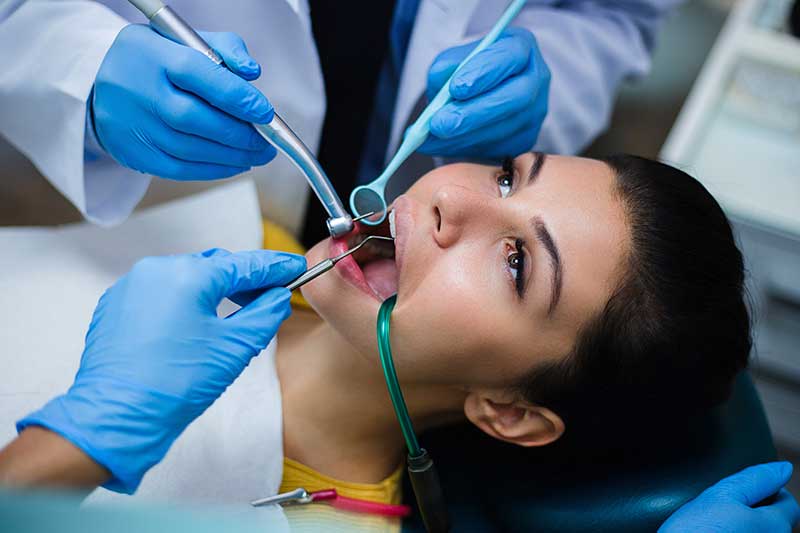What Is Periodontal Disease?
Periodontal (gum) disease is the inflammation and infection of the gums and soft tissue surrounding the teeth. Periodontal disease can be prevented with regular dental care. If, however, gum disease develops and is left untreated, the bacterial infection can lead to severe pain, tooth loss and organ damage throughout the body.
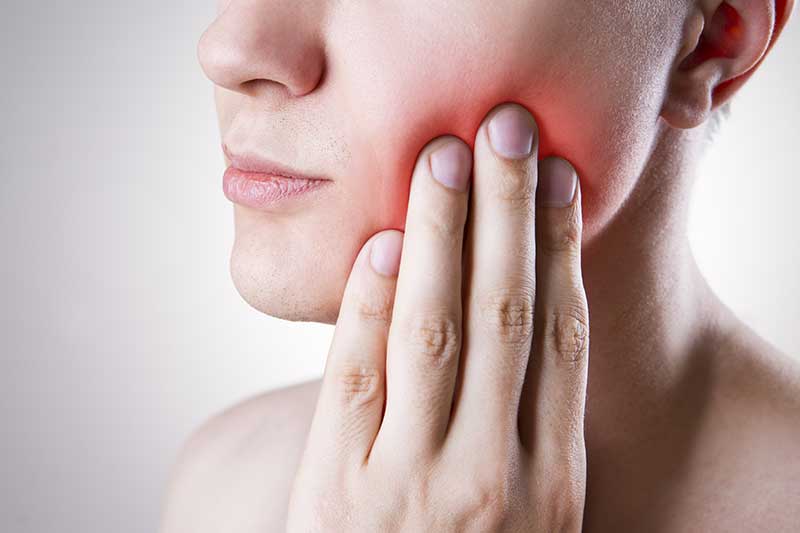
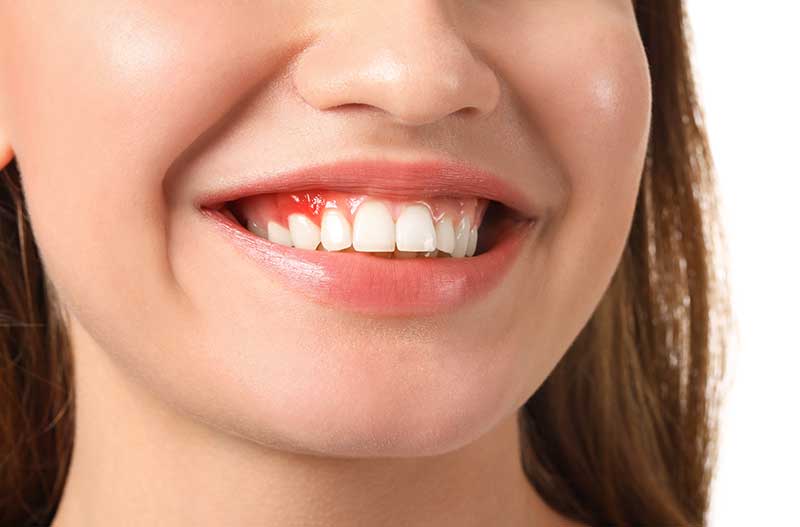
What Causes Periodontal Disease?
Gum disease develops when plaque, left on the teeth, hardens into tartar. Tartar builds up along the gum line, separating the gums from teeth and creating pockets where bacteria thrives, causing an infection.
Some individuals are more likely than others to develop gum disease. Risk factors include:
- poor oral hygiene
- tobacco use
- systemic diseases, such as HIV or diabetes
- certain medications
- hormonal changes in teens, pregnant women and those taking oral contraceptives
- genetic predisposition
- individuals with gum disease can pass on the bacteria through their saliva
Signs and Symptoms of Periodontal Disease
Healthy gums should be a nice pink color and fit tightly around the teeth. Individuals with gum disease might experience some or all of the following symptoms.
- red, puffy, swollen or tender gums
- gums that bleed with brushing or flossing
- loose gums
- pus between teeth
- persistent bad breath
- teeth which feel loose
- changes with bite (the way teeth fit together)
- changes with the way a partial denture fits
Some individuals experience no symptoms of gum disease. For this reason, regular check ups with a dentist are essential to early diagnosis and the ongoing care of your smile. Periodontal disease is most easily and effectively treated when diagnosed early. With an early diagnosis and proper treatment, tooth loss can be prevented and all signs and symptoms can be reversed.
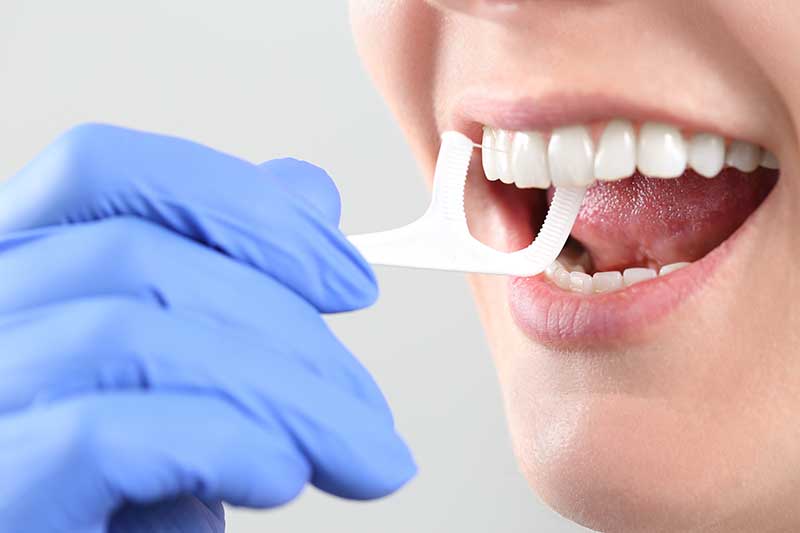
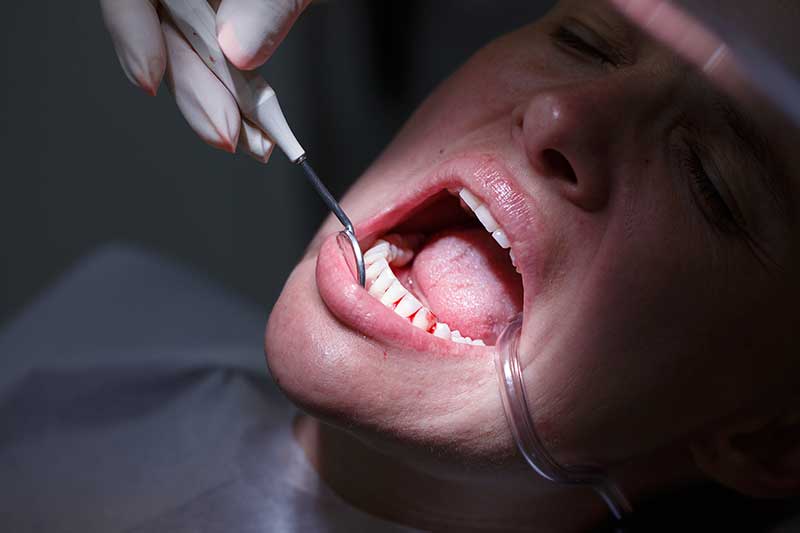
Periodontal Disease Treatment
To effectively treat periodontal disease, teeth must be cleaned, removing plaque, tartar and eliminating pockets where bacteria can grow so that the gums can reattach. The treatment of periodontal disease depends on the severity of the case. Typically, a professional cleaning and scaling of the teeth is always required. In more severe cases, root planing will also be necessary. If following a thorough periodontal cleaning, the gums do not adequately reattach and infection remains, periodontal surgery might be necessary.
Prevention: Always the Best Medicine
As with most health concerns, prevention is always the best medicine. Follow these steps to prevent gum disease:
- brush gently for two minutes, two times per day with a fluoride toothpaste
- floss daily or use another method to remove food and plaque from between the teeth
- limit sugary foods and beverages and try to brush immediately after consuming them
- consider using a daily mouth rinse to discourage bacterial growth
- visit your dentist for regular professional cleanings
With regular oral hygiene and visiting Schaffer Dental for a professional cleaning, you can protect your smile from the dangers and discomfort of periodontal disease. Contact our office to schedule an appointment today.
